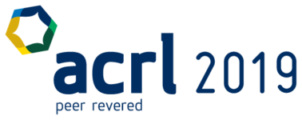Session Description:
Find out how one library incentivized faculty collaboration to incorporate information literacy learning outcomes into the undergraduate curriculum. A university library offered three $500 mini-grants to faculty who committed to teaming up with librarians to redesign a major assignment in an undergraduate class. Over the course of the fall 2018 semester, librarian/faculty teams worked together to develop information literacy learning outcomes, pre-tests, rubrics, and scaffolding information literacy skills throughout a course assignment. The redesigned assignments were implemented in spring 2019. In this panel, librarian teams will share their experiences collaborating with faculty on assignment design and share preliminary assessment data.
